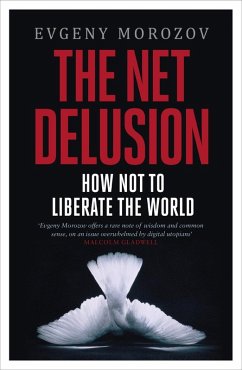At the start of the twenty-first century we were promised that the internet would liberate the world. We could come together as never before, and from Iran's 'twitter revolution' to Facebook 'activism', technological innovation
would spread democracy to oppressed peoples everywhere.
We couldn't have been more wrong. In The Net Delusion Evgeny Morozov destroys this myth, arguing that 'internet freedom' is an illusion, and that technology has failed to help protect people's rights. Not only that - in many cases the internet is actually helping authoritarian regimes. From China to Russia to Iran, oppressive governments are using cyberspace to stifle dissent: planting clandestine propaganda, employing sophisticated digital censorship and
using online surveillance. We are all being manipulated in more subtle ways too - becoming pacified by the net, instead of truly engaging.
This book is a wake-up call. It shows us how our misplaced faith in cyber-utopia means the West risks missing the real challenges. Morozov argues that we must look at other ways of promoting democracy abroad, and forces us - policymakers and citizens alike - to recognize that all our freedoms are at stake.
Dieser Download kann aus rechtlichen Gründen nur mit Rechnungsadresse in A, B, BG, CY, CZ, D, DK, EW, E, FIN, F, GR, HR, H, IRL, I, LT, L, LR, M, NL, PL, P, R, S, SLO, SK ausgeliefert werden.









